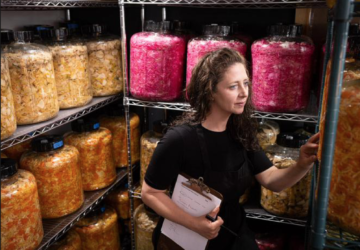Social Media Use May Harm Teens’ Mental Health by Disrupting Positive Activities, New Study Says
By Ryan Hammel
Teenagers have mastered occupying themselves in the hours after school until way past their bedtimes. When they’re not doing their homework (and even when they are) they’re on their phones: texting, facetiming, on Instagram, on Snapchat, on Facebook, among other apps. Of course, before everyone had an Instagram account teens kept themselves busy, too, but they were more likely to do their chatting over the phone, or in person. It may have looked like a lot of aimless hanging around, but what they were doing was experimenting, trying out skills, and succeeding and failing in real-time interactions that kids today are missing out on. For one thing, modern teens are learning to do most of their communication while looking at a screen, not another person.
People have always believed that social media use is linked to depression, anxiety, low self-esteem, etc. While this still remains true, a new study has shown that it is more complex, and not simply casual.
A research experiment took place in England that interviewed over ten thousand children ages thirteen to sixteen. The research was conducted by interviewing teenagers once a year from 2013 to 2015. They would report the frequency that they checked or used social media platforms. In 2014 and 2015, researchers asked about the participant’s psychological distress and their personal well-being. The researchers concluded that social media may harm girls’ mental health by increasing their exposure to bullying and reducing their sleep and physical exercise. They also determined that social media itself might not be to blame for mental health issues; rather, it takes away from girls’ sleep quality and exercise while exposing users to cyberbullying, and that’s what leads to lower well-being and problems with mental health.
NASA Announces Plans to go Back to the Moon, This Time With a Woman Astronaut
By Ryan Hammel
President Trump has requested for NASA (the National Aeronautics and Space Administration) to expedite their plans to return to the moon by 2024. The last time anyone set foot on the moon was nearly forty-five years ago. Trump has reasserted the nation’s focus on expanding humanity’s presence beyond earth.
Artemis is the name of the program to return astronauts to the moon. The astronauts will land on the moon’s “South Pole,” an area where no one has ever stepped foot. The goal of Artemis is to establish a sustainable human presence by 2028 to uncover new scientific discoveries, lay the foundation for private companies to build a lunar economy, and demonstrate new technological advancements. Artemis is the first step in beginning an era of exploration.
While a dozen male astronauts have set foot on the moon, no women have ever made the trek. Artemis will include the first female in history!
NASA Administrator Jim Bridenstine believes having a woman astronaut on the moon could inspire the next generation of female astronauts. He told CNN, “I’ve got an 11-year-old daughter and I want her to see herself as having every opportunity that I saw myself having when I was growing up. I think this could be transformational for young women all across, not just the country, but all across the world.”
Although NASA won’t reveal who the lucky woman will be, they have said that she is already in the astronaut corps. You can read the article below to learn more about the 12 female astronauts that are up for consideration:
https://www.cnn.com/2019/06/21/tech/nasa-moon-female-astronaut/index.html
Three High School Girls Invent “Smart Straws” That Can Detect Date Rape Drugs
By Charlotte Madden
Three High School girls took it upon themselves to lower the statistics of rape. Susana Cappello, Carolina Baigorri, and Victoria Roca acknowledge that their invention is not a solution to end rape all together; however their goal is to lessen the chances of young people being sexually assualted due to date rape drugs. The girls’ invention, Smart Straws, are straws intended to detect common date rape drugs in all beverages. The girls have aimed their focus mostly on college-aged students, where rape, unfortunately, is not uncommon. The three girls hope to inspire other young people who have business ideas and say to “pursue it if one feels passionate about it.”










